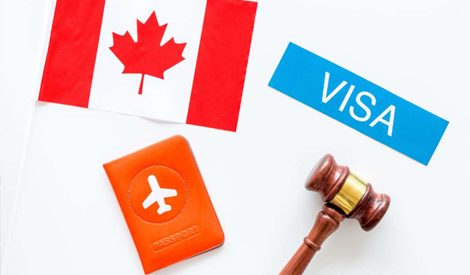Temporary Foreign Workers
- Home
- Temporary Foreign Workers
 As a temporary foreign worker, you have the right to change employers while you are in Canada. When you came to Canada as a temporary foreign worker, you were granted a work permit for a period of time. You may need to change your work permit before you can start working for a different employer. The Temporary Foreign Worker Program is a temporary Canadian work visa that was created by the Canadian Government to provide opportunities for foreign workers who want to get employment in Canada for a short period of time. The TFWP allows people to work in the country for only 6 months, with the possibility of extensions.
As a temporary foreign worker, you have the right to change employers while you are in Canada. When you came to Canada as a temporary foreign worker, you were granted a work permit for a period of time. You may need to change your work permit before you can start working for a different employer. The Temporary Foreign Worker Program is a temporary Canadian work visa that was created by the Canadian Government to provide opportunities for foreign workers who want to get employment in Canada for a short period of time. The TFWP allows people to work in the country for only 6 months, with the possibility of extensions.
Requirements to qualify for the TFWP are:
- You must have a job in Canada
- You must prove that you will leave Canada after your work permit expires;
- You must prove that you can finance your stay and your family’s stay in Canada and that you have enough funds to go back to your home country;
- You must prove that you have a clean criminal record;
- You must prove that you are not a threat to the national security of Canada;
- You must be in good health;
- You must prove that you will not work for an employer that offers striptease, erotic dance, erotic massage, or escort services;

LMIA Work Permit
A Labour Market Impact Assessment (LMIA) is a document that an employer in Canada may need to get before hiring a foreign worker. A positive LMIA will show that there is a need for a foreign worker to fill the job. It will also show that no Canadian worker is available to do the job. A positive LMIA is sometimes called a confirmation letter.
Once an employer gets the LMIA, the worker can apply for a work permit.
To apply for a work permit, a worker needs
- a job offer letter
- a contract
- a copy of the LMIA, and
- the LMIA number

LMIA Exempt Work Permits (IMP)
LMIA-exempt foreign workers fall under what is called the International Mobility Program (IMP). Being exempt from an LMIA does not mean the individual is exempt from obtaining a work permit. The purpose of the LMIA is to ensure that the inclusion of foreign workers will not negatively impact the native workers in Canada. Canada has TFWP or Temporary Foreign Worker Program to support its workforce. It was brought into effect when no people in the country had the required qualifications to work.
A foreign worker who is applying for a work permit must have a copy of the LMIA as part of his application for a work permit. However certain types of work permits are exempt from the LMIA. These include:
- Closed Work Permits
- Open Work Permits
- Closed LMIA-exempt Work Permits

Working Holiday Visa (IEC)
IEC Canada work permits provide young people from around the world with the opportunity to travel and work in Canada. The intention of the IEC Programs is to allow young adults to enter Canada to gain important experience and knowledge of Canada.
The Working Holiday Program of the IEC allows participants to obtain a work permit which will be valid for one to two years. The Open Work Permit will let the individual work anywhere in Canada for almost any Canadian employer!
Who is the Working Holiday for?
The Working Holiday Visa is for individuals who:
- Do not have a job offer.
- Want to work in Canada
- Want to work in more than one location.
- Want to travel and explore Canada while working.

Open Work Permit & Bridging Open Work Permit
The Bridging Open Work Permit (BOWP) allows foreign nationals who are currently working in Canada to extend their status while awaiting a decision on their permanent residency application. The BOWP is only available to those who have submitted a permanent residency application and are already in possession of a valid work permit. A successful BOWP application results in an open work permit, enabling the holder to work for multiple employers in multiple locations, of their own choosing.
Who Is Eligible For Bridging Open Work Permit?
- Reside in Canada with valid temporary resident status
- Meet one of the following criteria:
- hold a valid work permit with valid temporary resident status
- have submitted to renew their work permit and are on maintained status in Canada
- are eligible to restore their temporary resident status with authorization to work on a work permit

Post Graduate Work Permit (PGWP)
The post-graduation work permit (PGWP) is a pillar of Canada’s immigration system, allowing international students who graduate from universities and colleges in Canada to work in Canada for up to three years upon graduation. The post-graduation work permit also helps graduates transition to permanent resident status in Canada.
The PGWP is an open work permit, allowing its holder to work for any employer in any location in Canada, and to change employers freely. To obtain a post-graduation work permit, the applicant must currently hold valid temporary status or have left Canada. They must have graduated from an eligible designated learning institution (DLI). They must also submit clear evidence that they meet all of the following criteria:
- They have completed an academic, vocational, or professional training program at an eligible institution in Canada that is at least 8 months in duration leading to a degree, diploma, or certificate.
- They have maintained full-time student status in Canada during each academic session of the program or programs of study they have completed and submitted as part of their post-graduation work permit application. Exceptions can be made only for the following:
- leave from studies
- final academic session
- They have received a transcript and an official letter from the eligible DLI confirming that they have met the requirements to complete their program of study.

NAFTA Work Permits
NAFTA Professional Work Permits are an option for business persons from the U.S. or Mexico, who enter Canada to provide pre-arranged professional services to a Canadian enterprise. More than 60 different professional occupations are eligible to qualify under the NAFTA professional designation. Professionals requesting entry to Canada via this Canada work permit must demonstrate they are qualified to work in their profession, and must only perform work related to their profession while in Canada. Proof of credentials and/or work experience is required.
In order to do apply for a work permit as a NAFTA professional, a person must provide the following required documents:
- Proof of American or Mexican citizenship
- Confirmation of pre-arranged employment in Canada
- Proof of Canadian employment indicating the profession of the employment
- Credentials demonstrating their qualifications in their intended profession in Canada
